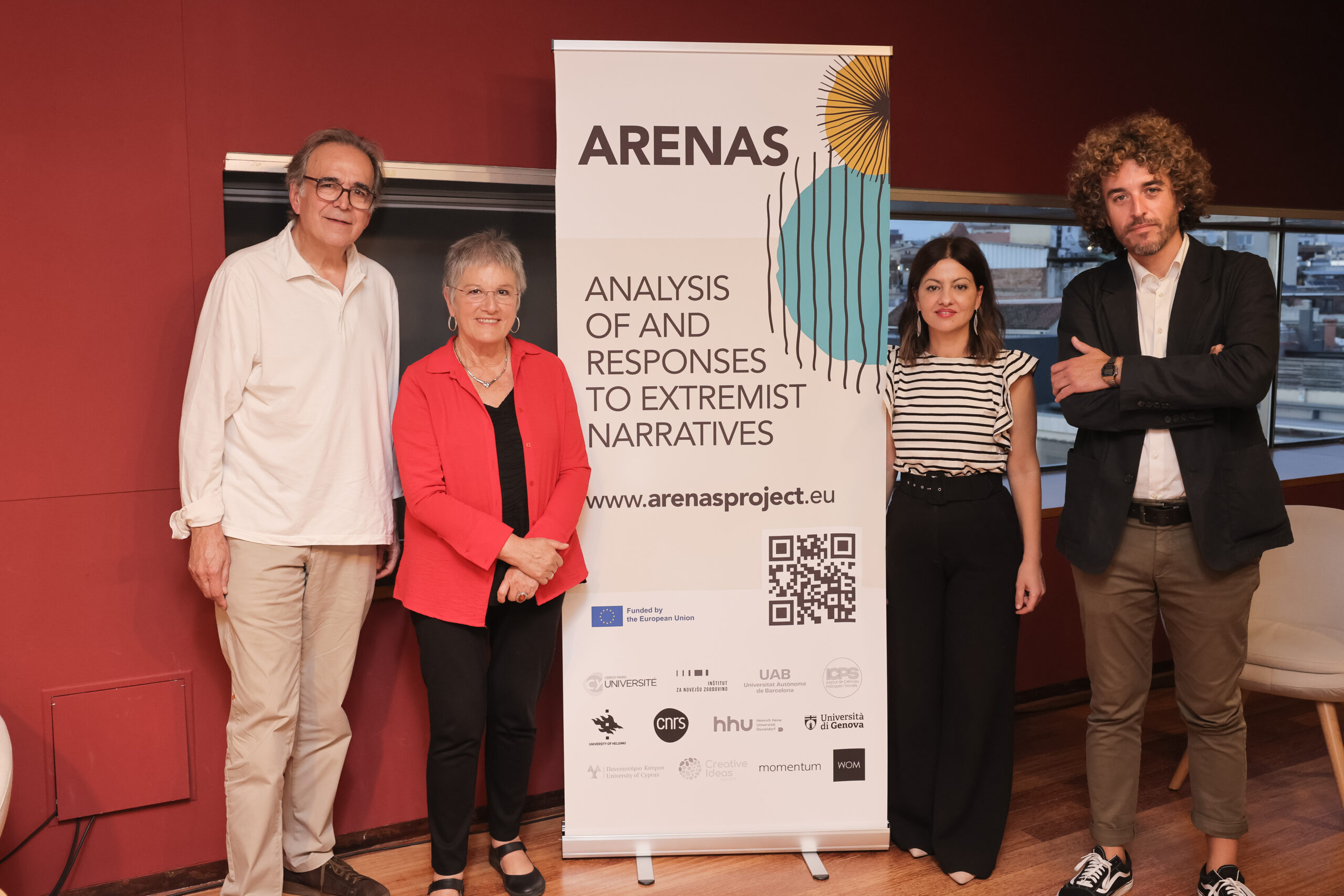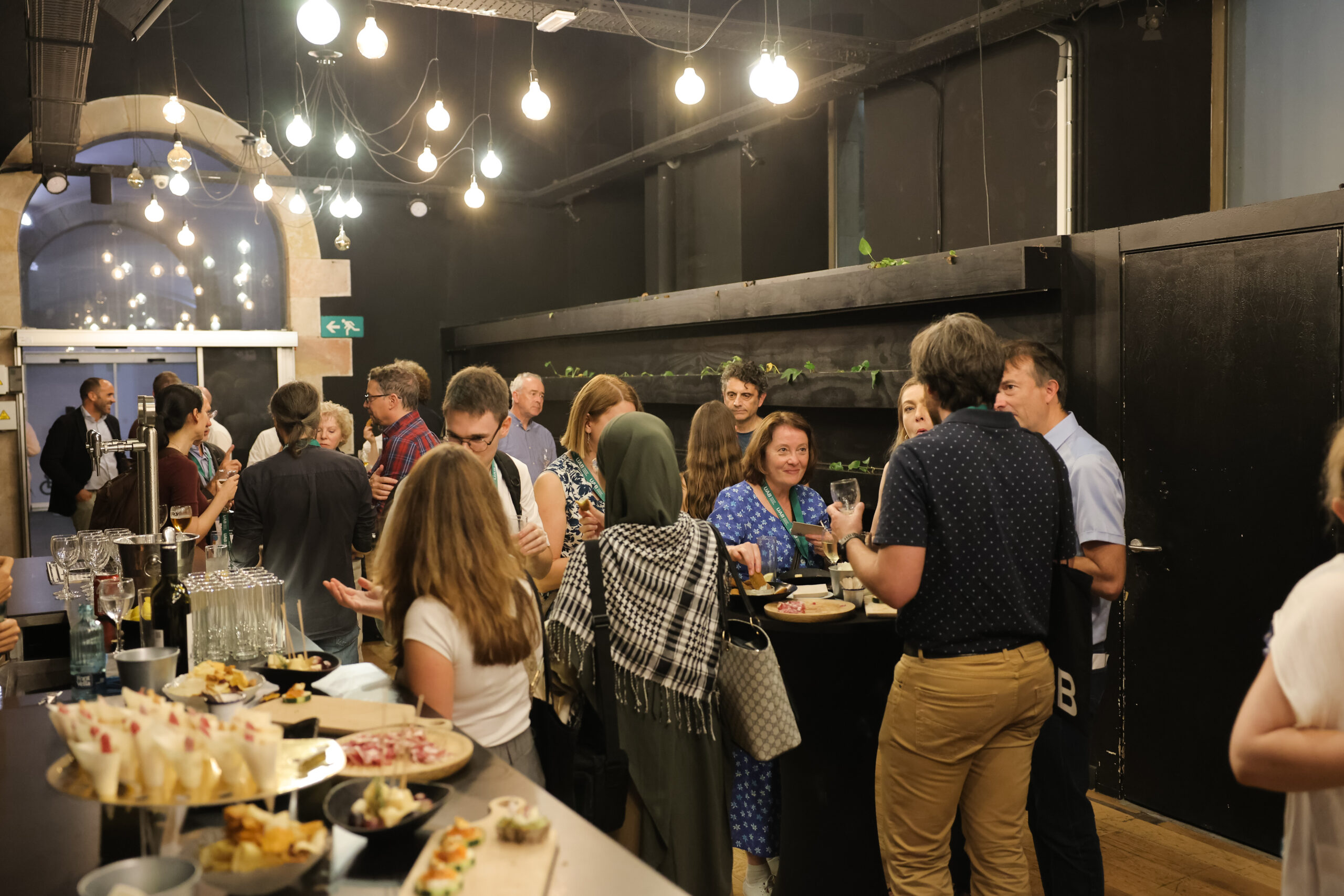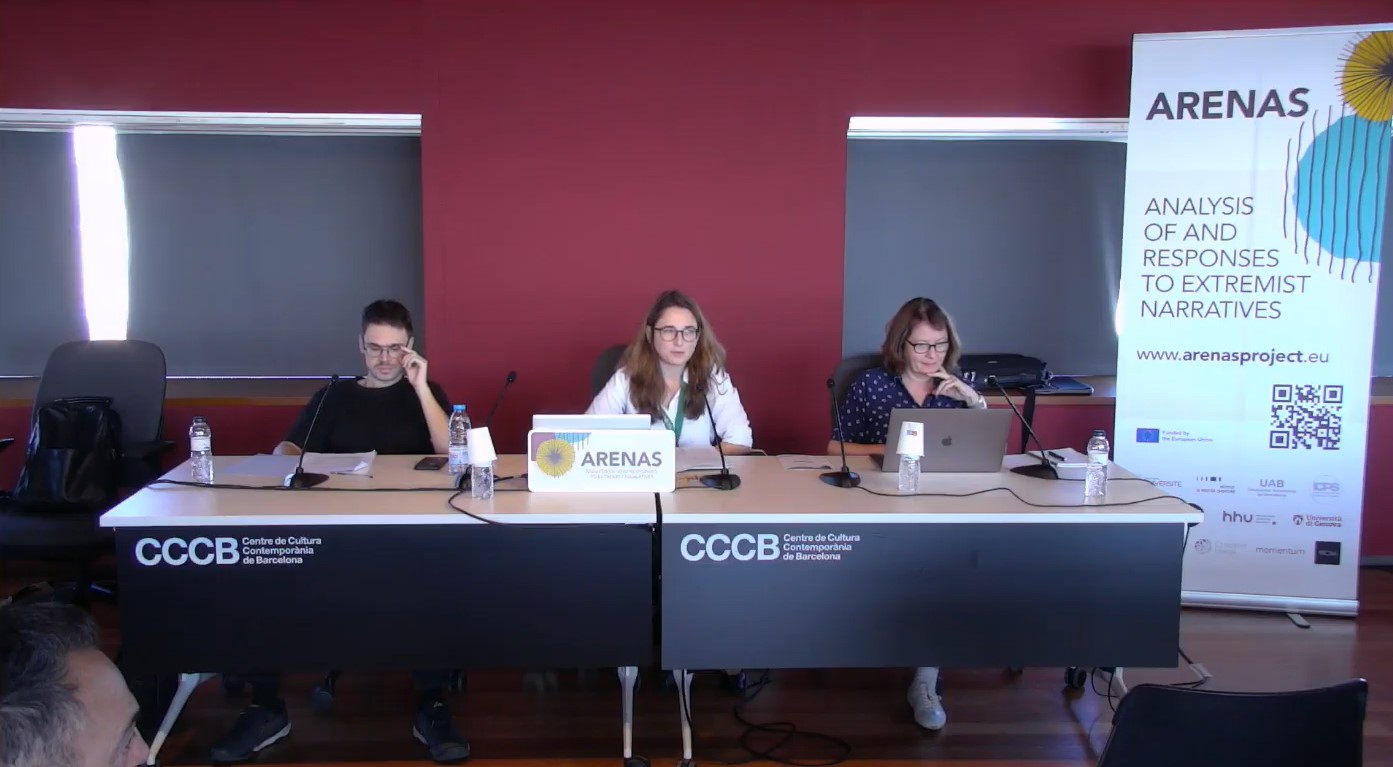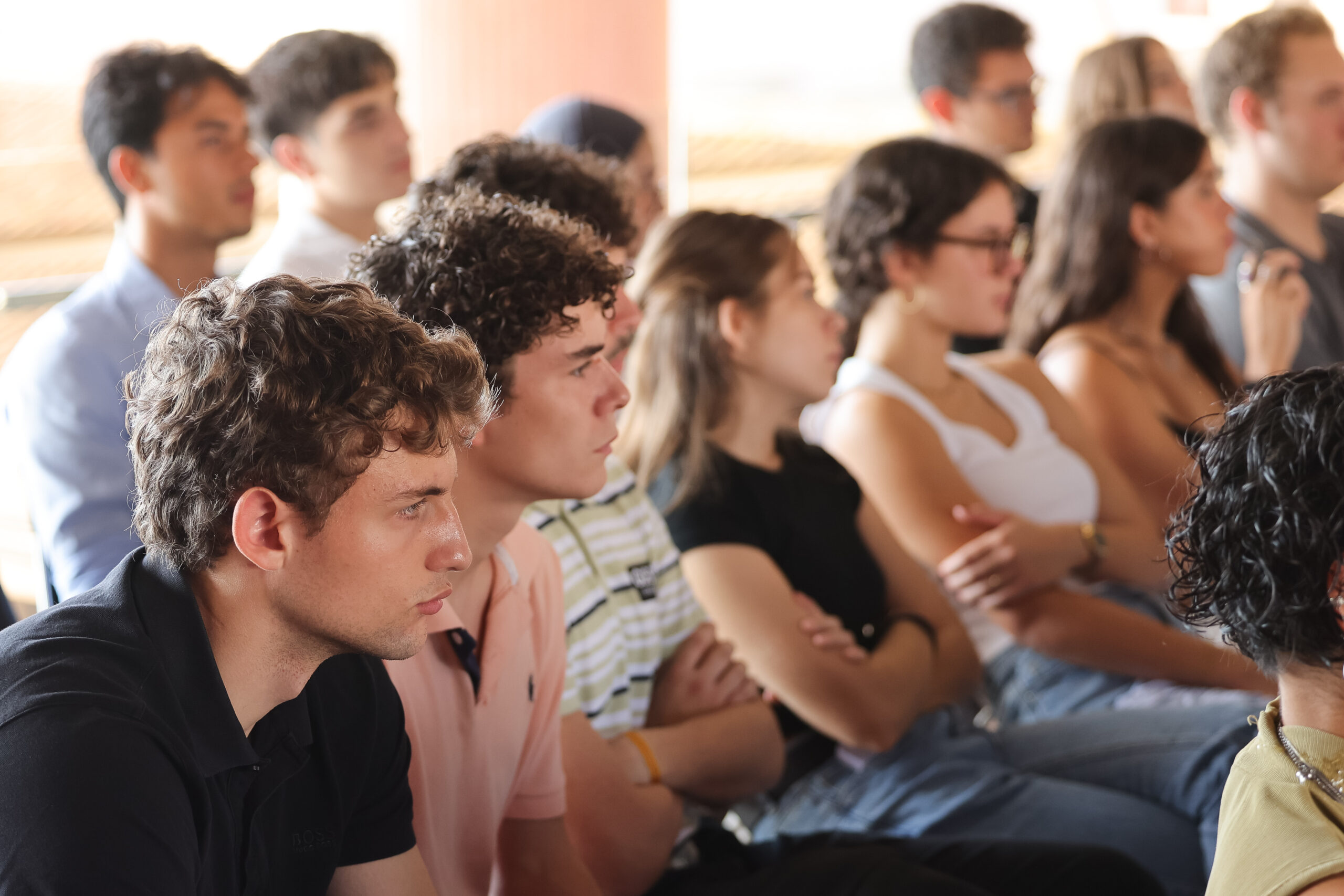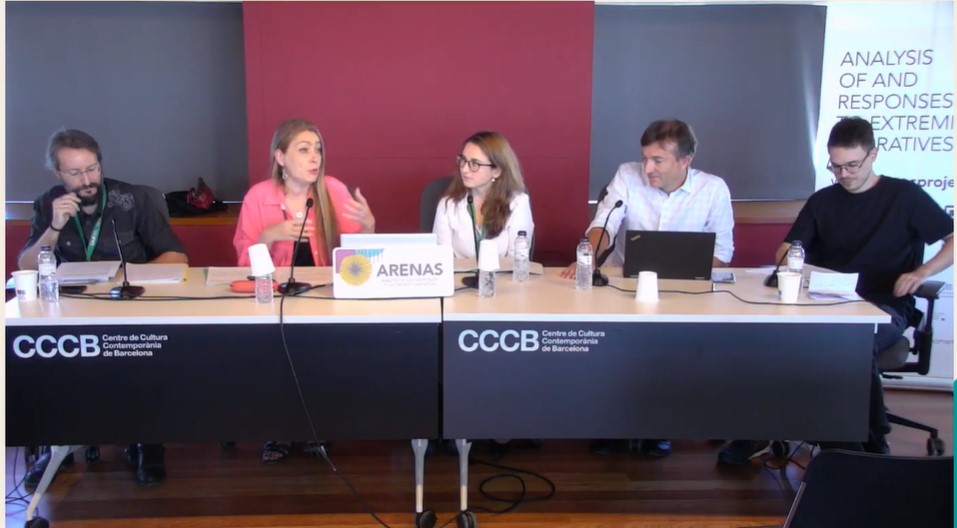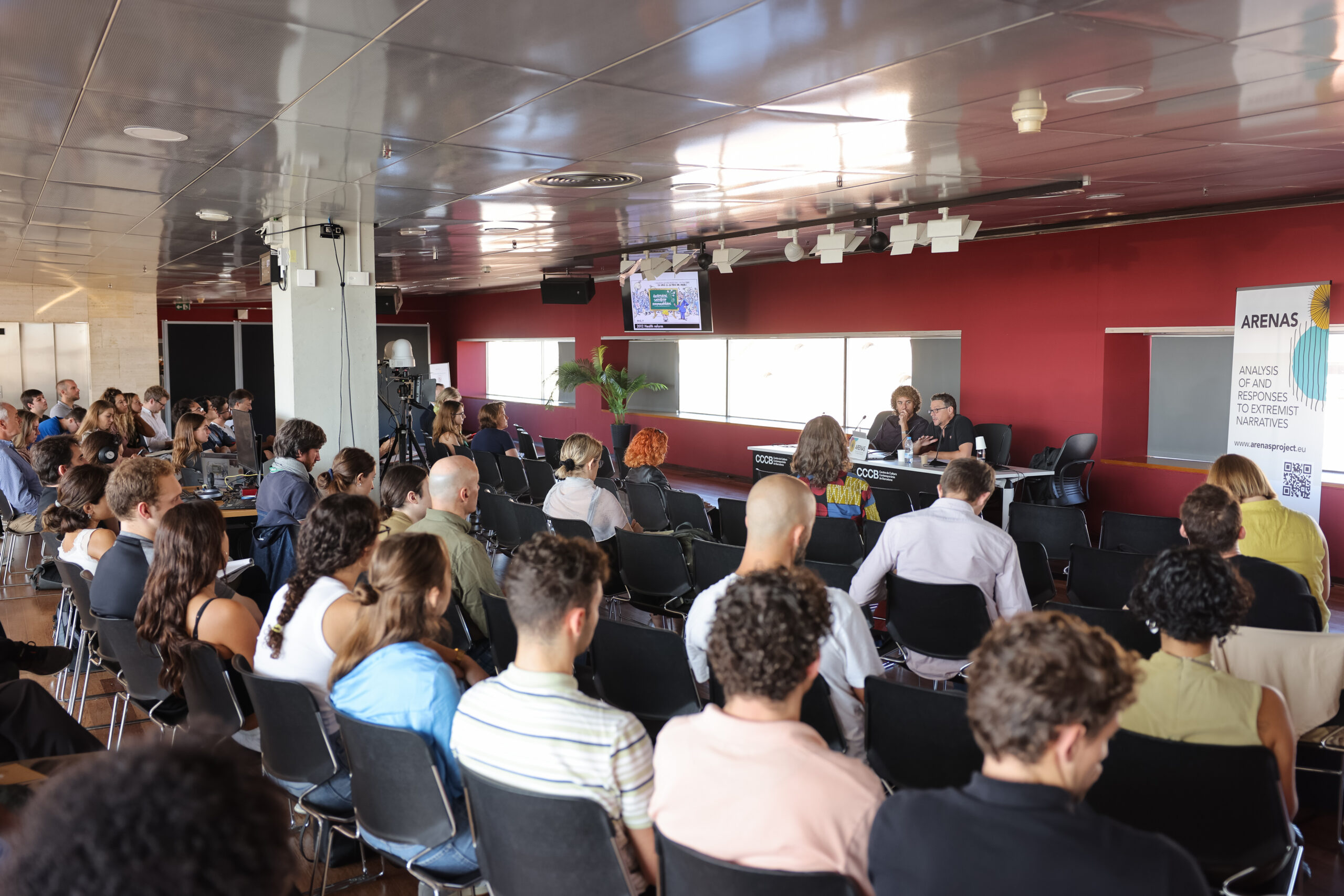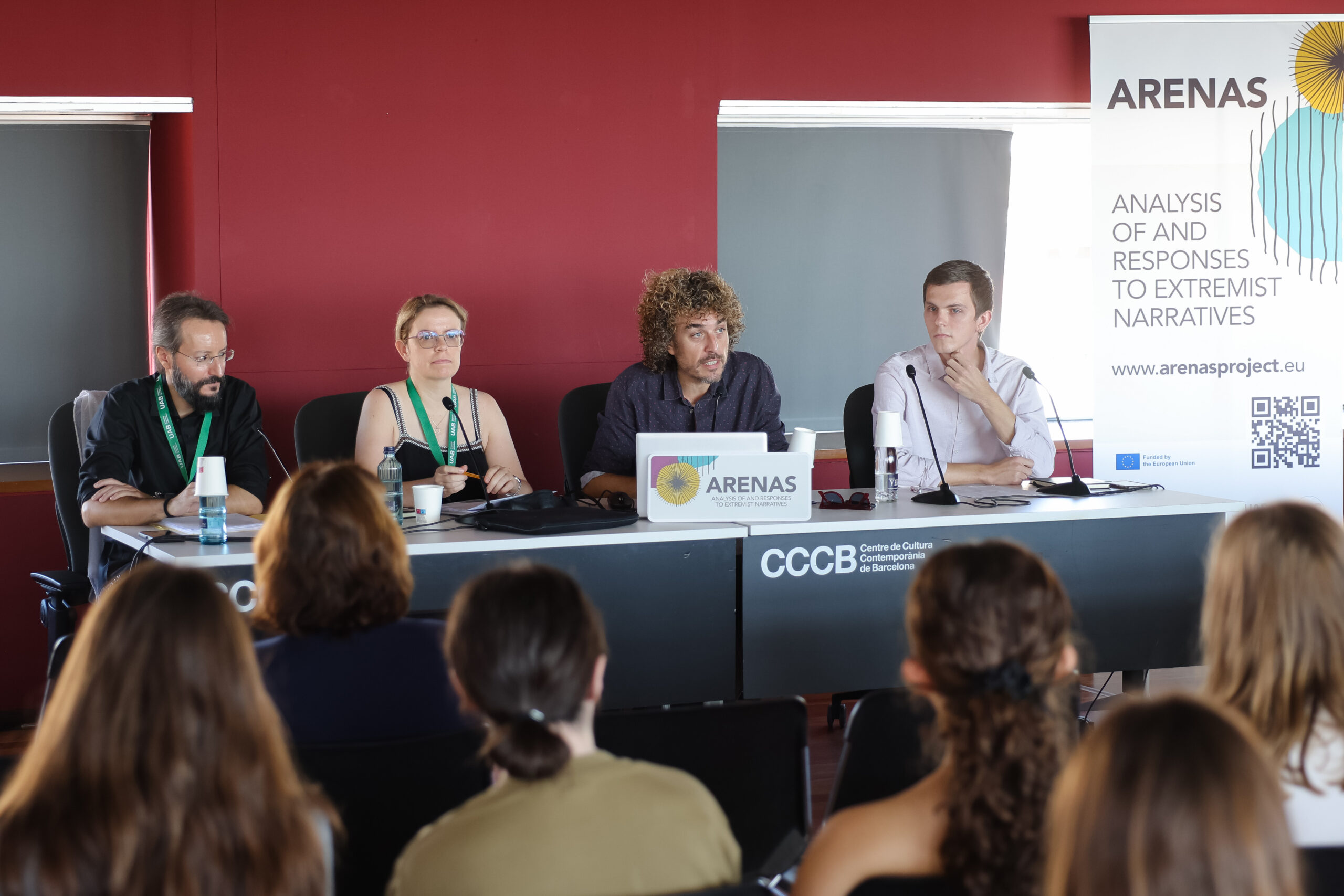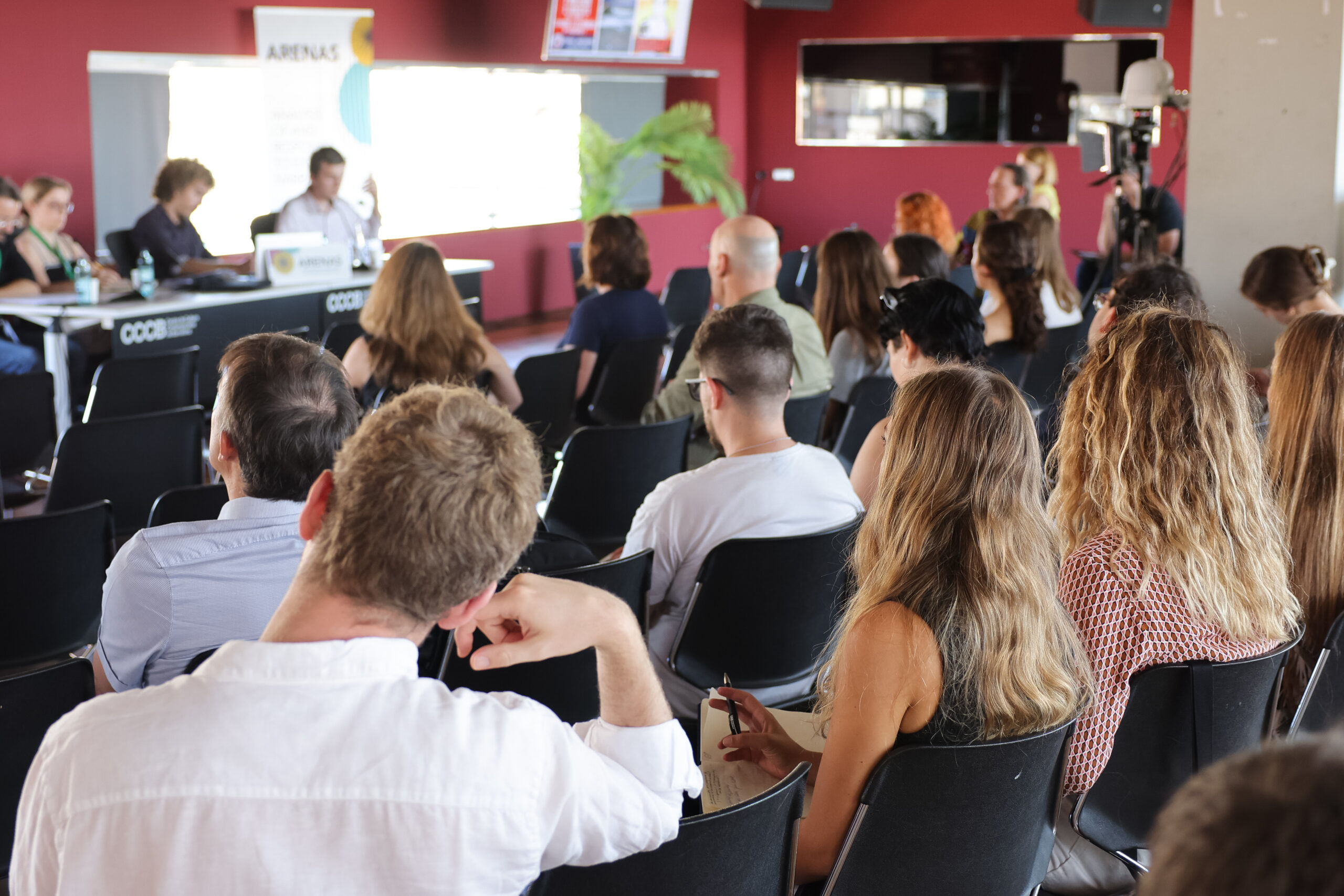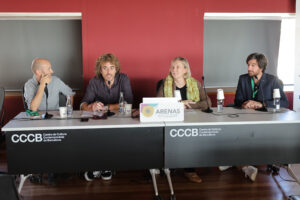
The Autonomous University of Barcelona (UAB) hosted an international conference recently to address some key topics of the ARENAS project. Going Extreme: History, Narratives and the Threat to Democracy in Europe was held at the Center de Cultura Contemporània de Barcelona (CCCB) from September 25th – 27th. More than 200 delegates from across Europe attended the conference or joined the livestream.
The conference examined the historical roots of the main extremist narratives currently circulating in Europe. Then looked at how have they transformed over the last century and how they have been adapted to different historical and national contexts. Finally, it considered how these extremist narratives circulate and are disseminated in the present time in the political space and the media.
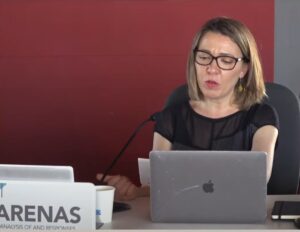
The event opened with a warm welcome from Judit Carrera, Director of the Centre de Cultura Contemporània de Barcelona. This was followed by the inaugural debate on democracy, youth and extremism in which the Minister of Youth and Children of the Government of Spain, Sira Rego, the former Minister of Universities of the Government of Spain, Joan Subirats, and the journalist of El País Milagros Pérez Oliva participated.
The next day the conference was officially inaugurated by Margarita Freixas i Alás, Dean of the Faculty of Arts and Humanities of the Universitat Autònoma de Barcelona (UAB), Pau Casanellas, Director of the Centre d’Estudis sobre Dictadures i Democràcies of the UAB, Julien Longhi, Project Leader of the ARENAS project from the Université Cergy-Paris and Steven Forti, Leader of WP3 of ARENAS project and conference organiser in the UAB.
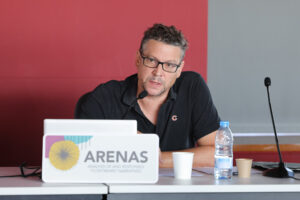
The opening day of the conference explored two of the three main topics addressed by ARENAS: nation and gender. Alejandro Quiroga (Universidad Complutense de Madrid) addressed the issue of “Nationalism and populism in Europe. Then and now”. This was followed by a round table on “Extremist Narratives and Nation” which was moderated by Steven Forti (UAB). Participants in the round table were Nathalie Le Bouëdec (Université de Bourgogne), Miguel Á. Del Rio Morillas (UAB) and Martin Lefranc (Université d’Orléans).
The afternoon session opened with Sara R. Farris (Goldsmith University) who spoke about “The normalisation of femonationalism in Europe”. Another round table on “Extremist Narratives and Gender” followed her presentation, this time the moderator was Ana Yara Postigo Fuentes (Heinrich-Heine-Universität Düsseldorf, HHU) and the participants were Paolo Gusmeroli (Università di Padova), Claudia Jareño (Université Cergy-Paris, CY), Isidora Grubački (Institute of Contemporary History of Ljubljana, INZ) and Gwenaëlle Bauvois (University of Helsinki, UH).
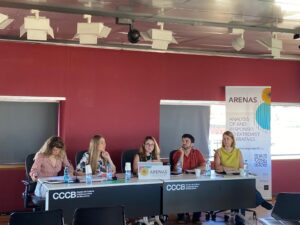
The next morning the focus turned to the third topic addressed by ARENAS: Science. Camil Ungureanu (Universitat Pompeu Fabra) gave a presentation titled “Only Science Can Save Us? Between denialism and Critical Scientific Humanism in the Anthropocene”. Again the keynote speaker was followed by a round table on “Extremist Narratives and Science”. Ana Yara Postigo Fuentes (HHU) again moderated this third round table, and the participants were Katalin Miklóssy (UH), Sergi Soler López (UAB) and Matteo Albanese (Università di Padova).
The conference concluded with a fourth round table on Medium and Circulation. Gwenaëlle Bauvois (UH) moderated this and the participants were Ana Yara Postigo Fuentes (HHU), Sergi Soler López (UAB), Miguel Á. Del Río Morillas (UAB) and Jure Gašparič (INZ).
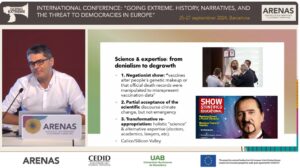
Speaking after the conference, Steven Forti reflected that “the results of this first phase of the ARENAS project, presented at this conference, show us that the extremist narratives that circulate in Europe today have strong historical roots in the 20th century and even in the 19th century. Each country has its own peculiarities, but we can find notable analogies and similar dynamics. In addition, the patterns of these narratives, especially in the case of the nation, remain in many cases similar over time, although they are adapted and updated, through a continuous process of recycling that can make them attractive in the present. What we have been able to see in these three days of fruitful debates is that the historical perspective is essential to understanding the present and the ability of extremist parties and groups to spread extremist narratives and discourses. The next step in our research is now to analyse the circulation of these narratives in the political space and in the media space today”.
WATCH: Conference Highlights video here:
